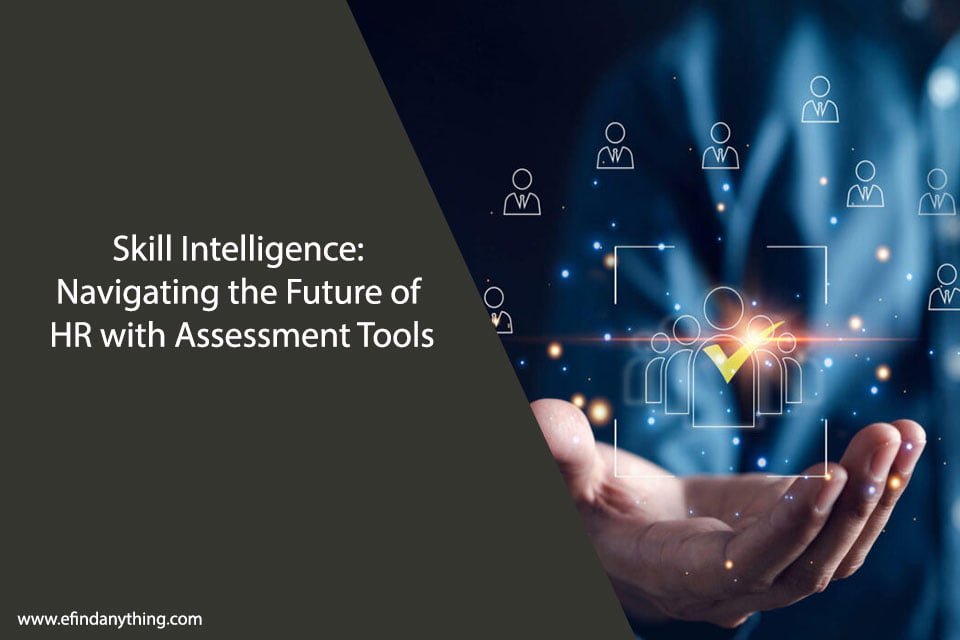
In the changing business world of today, companies are constantly searching for ways to stay ahead of the competition. One particular area of focus is revolutionizing the Human Resources (HR) function to attract, develop and retain talent. To achieve this, organizations are turning towards skill intelligence and assessment tools. This article will delve into how these innovative solutions assist HR professionals in navigating the future and making informed decisions regarding hiring, training and development.
Table of Contents
Assessment Tools in HR
A skills assessment tool presents tremendous benefits for the HR department. These tools have become indispensable within HR for many valid reasons. The primary one is ensuring that candidates possess the skills for a job role. Relying solely on resumes or interviews is no longer sufficient to evaluate a candidate’s suitability. Instead, these tools employ designed assessments that measure competencies required for specific positions.
Moreover, these assessments also serve as a way to standardize the selection process. By utilizing such measures, employers can evaluate candidates based on their competencies rather than relying solely on subjective judgments. This helps minimize bias in decision-making and promotes fairness throughout the hiring process.
Streamlining Hiring Procedures
Skills assessment tools have proven to be invaluable in streamlining recruitment efforts. The traditional process of manually reviewing resumes can become a daunting task for recruiters who want to ensure they efficiently identify top talent. However, assessment software comes to the rescue by automating resume screening based on predetermined criteria.
This not only saves organizations time and effort but also helps them identify potential candidates who possess the necessary competencies required for specific positions. Thanks to algorithms, recruiters can confidently shortlist individuals from extensive datasets, knowing that they meet essential skill requirements.
Identifying Skill Gaps
To build teams equipped with the expertise needed for growth, organizations must accurately pinpoint skill gaps among their existing employees. Skill intelligence tools provide insights into an individual’s strengths and weaknesses across skill sets, allowing HR professionals to identify areas that require further development.
This process not only enables HR professionals to design training programs but also optimizes career and succession planning within the organization. By integrating assessment tools with HR systems, talent teams can proactively align learning and development initiatives to address skill gaps effectively.
Monitoring Skill Development
Once skill gaps have been identified and addressed, it becomes crucial to monitor employee development progress. Traditional performance evaluations often fail to provide a picture of an individual’s growth.
Skills assessment tools provide real-time data on the competencies individuals have acquired, allowing managers to offer targeted feedback and support to foster growth.
Furthermore, leveraging these assessment tools helps organizations create a culture of learning by tailoring development plans to individual needs. This empowers employees as they know their growth is actively supported by the company.
Enhancing Diversity and Inclusion Efforts
Companies are increasingly focused on building inclusive workforces. Assessment tools play a role in achieving this goal by minimizing bias during the hiring process. These tools promote objectivity throughout the selection process by focusing on candidates’ abilities rather than their demographics or background information.
Moreover, assessments can help organizations identify and eliminate any barriers or biases that may exist within their practices. Continuously evaluating the effectiveness of assessments in attracting a talent pool opens up opportunities for changes that lead to better overall representation within an organization.
End Note
In today’s landscape, staying ahead requires embracing innovation in all aspects. Skill intelligence and assessment tools have empowered HR professionals to make decisions while streamlining recruitment efforts. These solutions are vital in identifying skill gaps among employees and contribute to ongoing monitoring and professional development initiatives.
Looking ahead, businesses will rely on these evaluation tools not just to attract top-notch individuals but also to create diverse work environments that encourage innovation, imagination and ongoing development. By embracing skill intelligence technologies, companies can confidently position themselves for success in the changing field of HR management.





